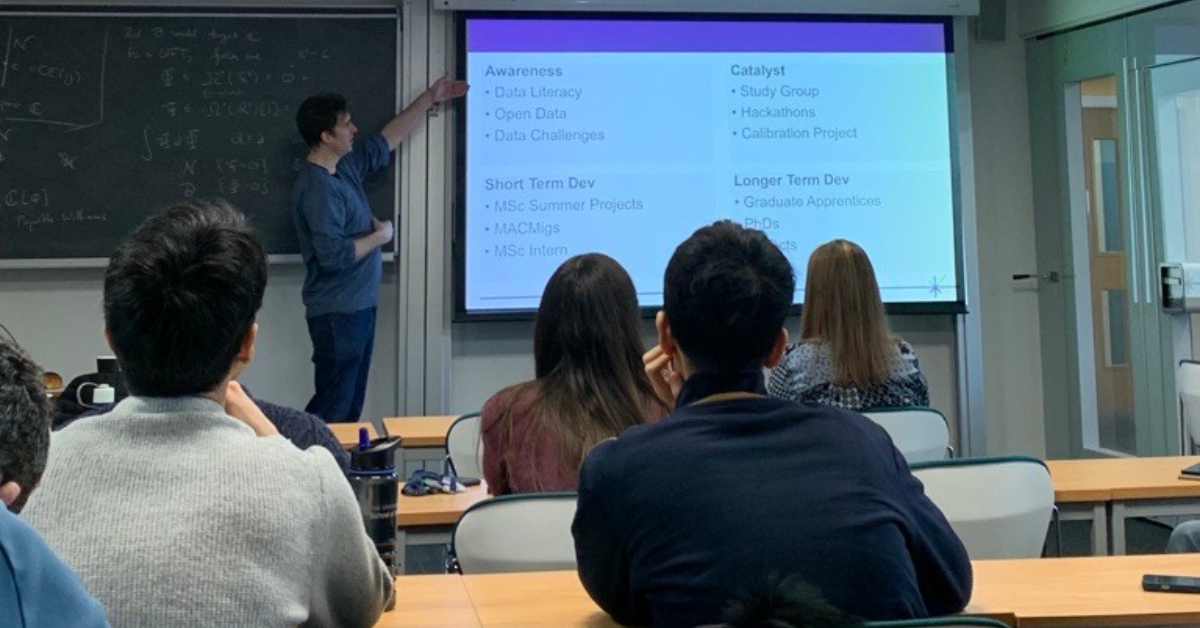Public Health Scotland and the School of Mathematics join forces for a healthier Scotland

Ken Nicholson, Principal Information Analyst for Public Health Scotland (PHS), spoke at our Knowledge Exchange and Impact seminar at the School of Mathematics in February, shedding light on the organization’s pivotal role in enhancing the health and wellbeing of Scotland’s population.
The seminar outlined various initiatives, projects, and challenges faced by PHS, offering a glimpse into the world of data-driven decision-making, long-term planning, and the evolving landscape of public health policy.
This was one in a series of Knowledge Exchange and Impact seminars where industry partners with opportunities for academic engagement are invited to speak at the School to identify ways members of the University can support their current work and plans. Attendees were able to ask questions about the material presented and network at the end of the session.
A data-driven approach to healthcare
Founded approximately four years ago, PHS serves as Scotland’s lead national body dedicated to improving public health outcomes through data intelligence and a place-based approach.
They actively support the 14 territorial health boards, operating with a vision to create a Scotland where everyone can thrive, emphasizing preventative care to reduce premature mortality. Funded mostly by the Scottish government, their work informs policy changes and implementation.
Ken highlighted the vast amount of data that is generated at any given time, and that Public Health Scotland has access to some of the oldest medical datasets globally. The seminar delved into the current challenges facing the healthcare system including the aging population of the country and the increased demand on medical services as a consequence.
A strong commitment to collaboration
PHS showcased a forward-thinking approach, using whole system modelling for long-term planning, connecting demand to activity, workforce planning, and addressing the ongoing impact of COVID-19. The notion of using AI for a personalised health program was also raised as a probable feature of healthcare within the next few decades.
PHS stressed its strong commitment to collaboration with universities and external bodies, fostering an interdisciplinary approach to problem-solving.
The seminar promoted the Impact Accelerator Program, funding secondments and collaborative projects. Ken also raised the possibility of turning research questions proposed during our recent ‘HealthTech AIMday’ (Academic Industry Meeting day) in February into PhD projects.
The overarching goal is to encourage more linear, funded development of projects designed around the academic year, nurturing ground-breaking ideas from start to finish and transforming challenges into PhD projects.
Learn more about the ‘AIMday’ concept
Work with the School of Mathematics
Contact our Business Development team



